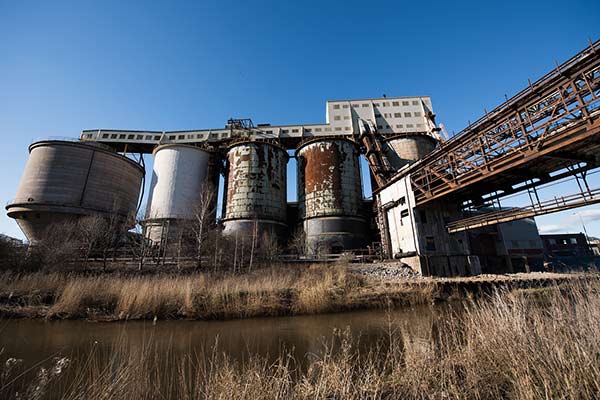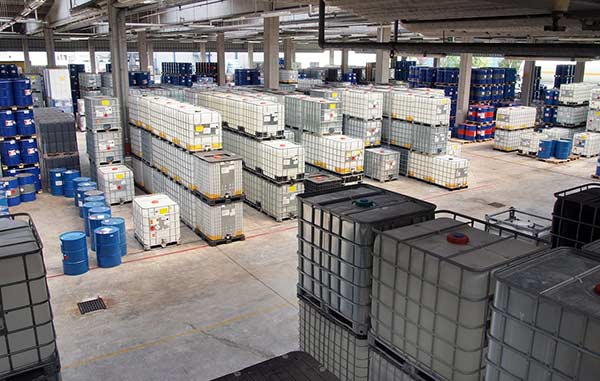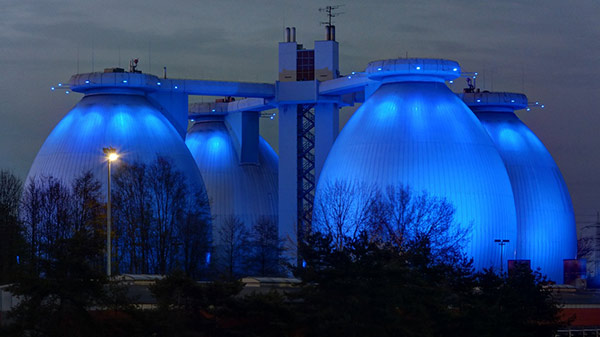So you’re thinking about investing in an epoxy floor coating for your industrial or commercial facility. You want to make the most of your time and money, and you certainly don’t want to have to repeat the process again in just a year or two.
Jamie Gillespie
Recent Posts
How long do epoxy floor coatings last before needing replacement?
Topics: Epoxy Coatings
Avoiding Unexpected Floor Coating Chemical Corrosion
While chemical corrosion is an important concern for facility managers and company owners, the risk isn't jsut an aesthetic one.
While corrosion may ruin the look of a flooring system, making it seem dated or run-down even in brand new facilities, what corrosion will really damage is the durability and performance of the floor itself.
We believe that the best offense is a good defense. The best way to protect your business from corrosion is to choose the best contractor and floor coating system right from the start.
What floor coatings can withstand a chemical environment?
Working within a chemical environment often involves a greater attention-to-detail. Corrosion or contamination of even generally benign chemicals can cause worry or panic in employees, managers, and even in the public. The best way to protect your business, the environment, and employees when running a facility that works often with dangerous chemicals? Focus on safety from the ground up.
Durability of Concrete Polishing And What it Means to You
Concrete is formulated by mixing four basic ingredients: Portland cement, small aggregates such as sand, large aggregates like gravel or crushed stone, and water. Cement is manufactured in five different grades, based on their setting and curing time. These options allow you to choose different levels of durability and blend.
The perfect mix of concrete for any working condition can be met simply by altering the ratios of one or more of the ingredients (and the occasional help of certain additives). The concrete can also be reinforced with steel or wire mesh to add to its strength.
How Floor Coatings Support Your Company's Safety Policies
Safety and Flooring: In any commercial or industrial establishment, the floor traffic is higher than normal. The level of activity might be due to pedestrian traffic, in the case of a retail store, or rubber-tired vehicular traffic in certain manufacturing environments. Without clear demarcation in high-traffic areas, you could end up dealing with accidents, Workers' Compensation claims, or even just constant confusion as to who should be where at any given moment.
Accidents, spills, and other issues caused by unclear flooring could lead to costly flooring deterioration. Instead of taking this risk, it's important to look into how you can take your plain flooring system and help it provide safety guidelines for your employees today.
General Manufacturing Demands Floors With Serious Strength
"General manufacturing” is an umbrella term that can cover a huge variety of different workforce situations. Whether your facility involves the assembly of car parts, household appliances, aircraft, or packaging systems, there’s one thing just about every variation on general manufacturing has in common — high foot traffic and a large production room that requires an emphasis both on safety and design.
Consequences of Choosing the Wrong Wastewater Treatment Floor Coating
Whether you’re in the process of designing and building a new wastewater treatment facility or you own an existing facility and are looking to upgrade to fit modern safety regulations, there is one aspect whose importance we can’t overstate: the flooring. While floors are often overlooked, they are an integral aspect of maintaining the safety of both your employees and the public in any wastewater treatment situation.
Why Do Wastewater Treatment Facilities Need Such Heavy-Duty Flooring?
Building, operating, and maintaining a wastewater treatment facility involves a unique set of challenges when it comes to day-to-day operations. Choosing the right flooring is an essential step in protecting both employees and the larger public from issues with contamination.
Topics: Work Safety
Specialty Flooring in Medical Research and Pharmaceutical Facilities
Any industry that deals directly in the health and safety of average citizens faces extra scrutiny when it comes to building and health codes. The pharmaceutical and medical research industries play a massive role in public health, and any violations or issues with Joint Commission Standards have huge consequences. Let's discuss the importance of specialty flooring.
Breaking Down the Floor: Commercial Bakeries vs. Seafood Packaging
In a previous blog, we touched on the specialty requirements facing businesses that operate within the food and beverage industry when it comes to their flooring and floor coating options. The term “the food and beverage industry” is an incredibly varied one, encompassing everything from restaurants to packaging and processing facilities and more. Each of these types of businesses will have their own specific requirements, depending on the facility.
Topics: USDA Approved Flooring










